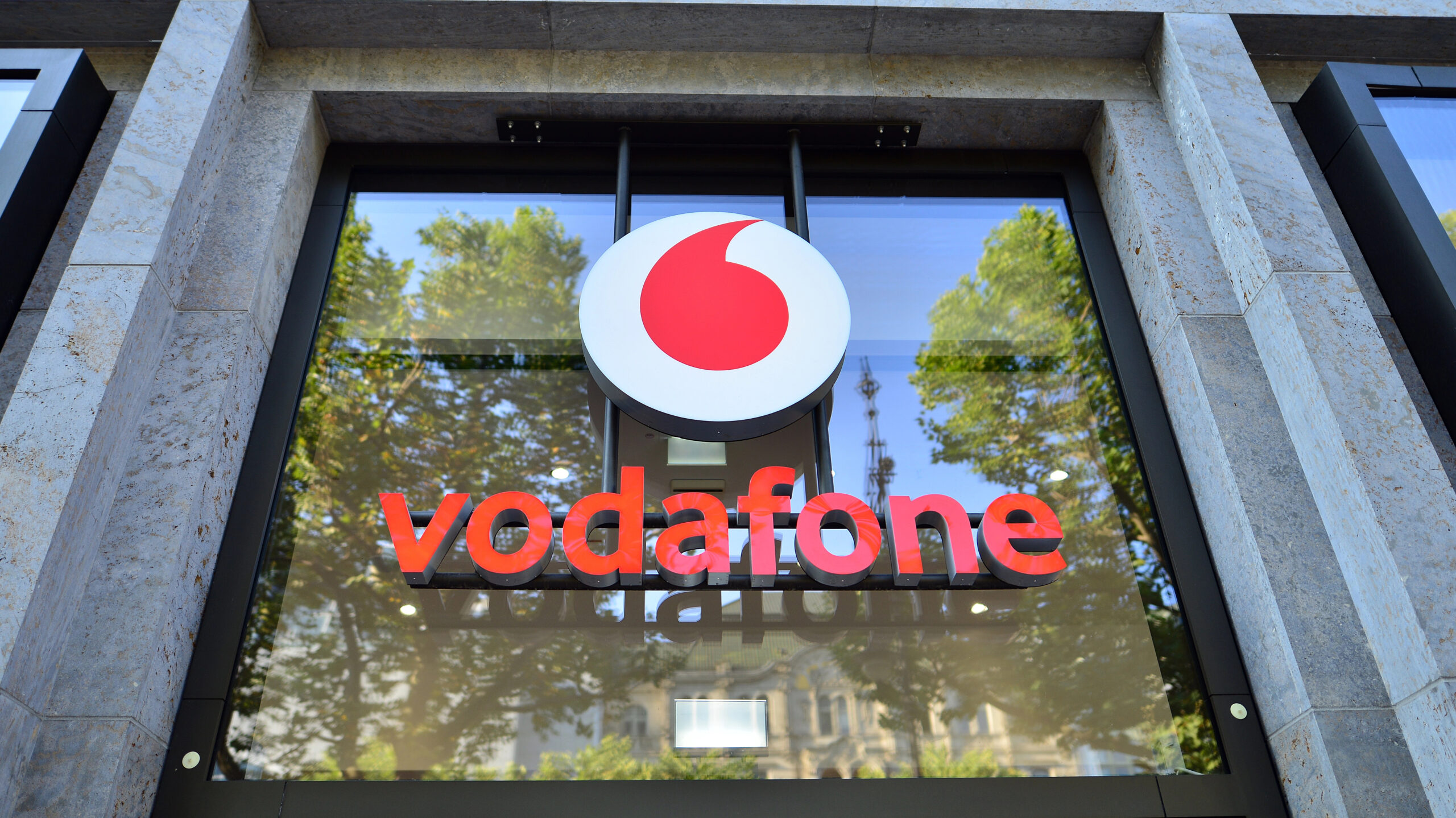India’s telecommunications sector is undergoing a significant shift. The Indian government is converting a large portion of Vodafone Idea’s dues into equity. This move increases the government’s stake in the struggling telecom giant. It reshapes the ownership structure of one of India’s largest mobile operators. Moreover, it signals a strong commitment from the government to stabilize the telecom industry. In this article, you will explore the implications of this equity conversion. Additionally, we will discuss its impact on Vodafone Idea’s financial health and the future of telecommunications in India.
Vodafone Idea’s Mounting Debt Burden

Vodafone Idea, one of India’s leading telecom operators, has been grappling with a staggering debt load that threatens its very existence. The company’s financial woes stem from a combination of factors, including intense market competition, regulatory challenges, and significant infrastructure investments.
The Scale of the Debt Crisis
As of the latest reports, Vodafone Idea’s total debt stands at a whopping ₹2.16 trillion ($25.86 billion). This enormous figure includes deferred spectrum payment obligations, which account for a substantial portion of the company’s liabilities. The sheer magnitude of this debt has placed immense pressure on Vodafone Idea’s balance sheet, hindering its ability to invest in network improvements and compete effectively in the cutthroat Indian telecom market.
Impact on Operations and Market Position
The crushing debt burden has had far-reaching consequences for Vodafone Idea’s operations. The company has struggled to keep pace with its rivals in terms of network expansion and 5G rollout. This lag in infrastructure development has led to a gradual erosion of its market share, as customers migrate to competitors offering better coverage and faster data speeds.
Need for Financial Restructuring
To address this critical situation, Vodafone Idea has been exploring various avenues for debt relief and capital infusion. The company’s dire financial straits have necessitated government intervention, leading to the current proposal to convert a significant portion of its dues into equity. This move represents a crucial lifeline for Vodafone Idea, potentially providing the breathing room it needs to stabilize its operations and chart a path toward long-term viability.
Government’s Equity Conversion Plan: Raising Stake to Nearly 49%
Understanding the Conversion Strategy
The Indian government decided to convert Vodafone Idea’s spectrum auction dues into equity. This marks a significant shift in its telecom strategy. The government’s stake in the company will rise from 22.6% to nearly 48.99%. This is just shy of majority ownership. The conversion of ₹369.5 billion ($4.3 billion) in dues represents a substantial financial restructuring. It will alleviate a portion of Vodafone Idea’s massive ₹2.16 trillion debt burden.
Implications for Vodafone Idea and the Telecom Sector
This equity conversion strategy serves multiple purposes. Firstly, it provides Vodafone Idea with much-needed financial relief, potentially improving its operational capabilities and market competitiveness. Secondly, it demonstrates the government’s commitment to maintaining a healthy, competitive telecom ecosystem in India. The move aligns with the September 2021 relief package, underscoring the government’s proactive stance in supporting the sector’s stability and growth.
Balancing Ownership and Control
Despite the government’s increased stake, it’s crucial to note that operational control will remain with the original promoters – Vodafone Group and Aditya Birla Group. This arrangement ensures continuity in management while providing the benefits of government backing. The market’s positive reaction, evidenced by the 10% surge in Vodafone Idea’s shares, suggests investor confidence in this strategic move and its potential to enhance the company’s financial outlook.
Implications of Increased Government Ownership
The Indian government’s decision to convert Vodafone Idea’s dues into equity, significantly increasing its stake, has far-reaching implications for the telecom sector and the company itself.
Potential for Financial Stability
With the government now holding nearly 49% of Vodafone Idea’s shares, the company may find itself on more stable financial footing. This move could help alleviate the crushing debt burden that has long plagued the telecom giant. By reducing the immediate pressure of repaying spectrum dues, Vodafone Idea may be better positioned to invest in infrastructure and service improvements.
Competitive Landscape Shifts
The increased government stake in Vodafone Idea could potentially alter the competitive dynamics of India’s telecom market. With greater government backing, the company might be able to compete more effectively against rivals like Reliance Jio and Bharti Airtel. This shift could lead to more balanced market competition and potentially benefit consumers through improved services and competitive pricing.
Governance and Operational Considerations
While the government’s stake has increased substantially, it’s crucial to note that operational control remains with the original promoters. This arrangement raises interesting questions about the balance of power in decision-making processes. Vodafone Idea may need to navigate a complex landscape of stakeholder interests, balancing government priorities with those of private investors and operational necessities.
Telecom Sector Relief Package: A Lifeline for Vodafone Idea
The Indian government’s decision to convert Vodafone Idea’s dues into equity is part of a broader telecom sector relief package announced in September 2021. This package was designed to address the financial challenges faced by telecom operators and ensure the continued viability of a competitive market.
Key Components of the Relief Package
The relief package includes several measures aimed at easing the financial burden on telecom companies:
Moratorium on adjusted gross revenue (AGR) dues
Extended timeline for spectrum payments
Reduction in bank guarantee requirements
Option to convert dues into government equity
These provisions have been particularly crucial for Vodafone Idea, which has been struggling under a massive debt load.
Impact on Vodafone Idea’s Financial Health
The conversion of dues into equity provides Vodafone Idea with much-needed breathing room. By reducing its immediate financial obligations, the company can:
Focus on improving its network infrastructure
Invest in 5G technology rollout
Enhance its competitive position in the market
This government intervention demonstrates a commitment to maintaining a three-player telecom market in India, preventing a potential duopoly situation.
Long-Term Implications for the Telecom Sector
While the relief package offers immediate benefits, it also sets a precedent for government involvement in the telecom industry. This move could potentially:
Encourage further investment in the sector
Promote technological advancements and improved services
Ensure more stable and competitive pricing for consumers
As the telecom landscape continues to evolve, the success of this intervention will be closely watched by industry stakeholders and policymakers alike.
Investor Optimism and Vodafone Idea’s Shares Surge
Market Response to Government’s Equity Conversion
The announcement of the Indian government’s decision to convert Vodafone Idea’s dues into equity sparked a wave of enthusiasm in the market. Investors responded positively to this strategic move, recognizing its potential to alleviate the telecom giant’s financial strain. As a result, Vodafone Idea’s shares experienced a remarkable 10% surge, reflecting renewed confidence in the company’s prospects.
Implications for Vodafone Idea’s Financial Health
This equity conversion represents a significant turning point for Vodafone Idea. By transforming ₹369.5 billion ($4.3 billion) of outstanding spectrum auction dues into equity, the government is effectively providing the company with a lifeline. This move not only reduces Vodafone Idea’s immediate debt burden but also improves its balance sheet, potentially enhancing its ability to invest in infrastructure and compete more effectively in the highly competitive Indian telecom market.
Long-Term Outlook and Investor Sentiment
The surge in share price indicates that investors view this development as a positive step towards Vodafone Idea’s long-term sustainability. While the government’s stake will increase to nearly 49%, the retention of operational control by the original promoters—Vodafone Group and Aditya Birla Group—appears to have reassured shareholders. This arrangement suggests a balance between government support and private sector expertise, which could prove crucial in navigating the challenges ahead in India’s dynamic telecom landscape.
Final Thoughts
The Indian government’s decision to convert Vodafone Idea’s dues into equity marks a significant shift in telecom. This move demonstrates the government’s commitment to supporting the sector. It also provides a lifeline to one of India’s major telecom players. While challenges remain, this equity conversion could pave the way for Vodafone Idea’s financial recovery. It may help the company maintain its market presence. As the situation unfolds, it will be crucial to monitor how the increased government stake impacts operations. Additionally, the broader competitive dynamics of India’s telecom industry will be affected. In the coming months, it will be clear whether this bold move achieves its goals. These goals include stabilizing Vodafone Idea and fostering a healthier telecom ecosystem.
More Stories
Google’s AI Edge App Brings Offline Intelligence to Your Phone
The new AI Edge App from Google reshapes mobile technology as it brings artificial intelligence directly to your smartphone.
Salesforce Accelerates AI-Driven Cloud Data Integration with Informatica Acquisition
Salesforce acquires Informatica in a deal valued at around $8 billion as part of a bold move to redefine its approach to cloud data management.
Samsung’s AI Power Play: Perplexity Partnership Signals Shift from Google
Samsung is poised to redefine AI in its Galaxy smartphones through a bold strategic move. It has partnered with Perplexity AI, an innovative U.S.-based startup. This signals a possible shift away from Google’s AI ecosystem. As a result, Samsung may integrate Perplexity’s advanced assistant into its devices.
Amazon’s Bold $150 Billion Drive to Expand AI-Powered Data Centers
Amazon has embarked on an audacious journey, committing a staggering $150 billion over the next 15 years to expand its AI-powered data centers worldwide.
KT Cloud Accelerates Digital Growth with New High-Tech Data Center in Yecheon-Gun
KT Cloud new data center in Yecheon-gun marks a key public-private effort with Gyeongsangbuk-do and Yecheon County.
Microsoft Cloud Momentum Fuels AI Growth Across Indonesia and Malaysia
Microsoft Cloud services expands strategically into Indonesia and Malaysia to reshape Southeast Asia’s technological landscape.


